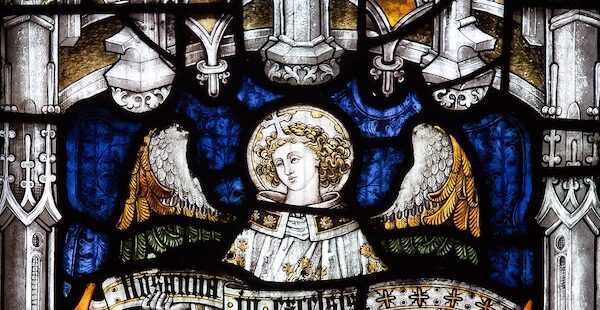
On the Nature of Man
Agnoete: What an amazing animal is mankind! He evolved from apes and chimps, but he is able to reason and think and communicate and create!
Theophilus: This is because man is more than an animal; though he resembles animals in some ways, he stands somewhere between beasts and angels, as David says, “Yet you have made him a little lower than the heavenly beings and crowned him with glory and honor. You have given him dominion over the works of your hands; you have put all things under his feet.”
Agnoete: How can man be more than an animal? He meets all the criteria to be a mammal, and he can be classified with a scientific name, Homo Sapiens, just as all other animals.
Theophilus: It is true that man is an animal, strictly speaking, for he is (as Webster says) “an organized body, endowed with life and the power of voluntary motion.” But he is more than an animal, and we must not think of him as a beast. Though he has an animal body, yet he has an eternal spirit, which is something that no beast has. His position is intermediate between beasts and angels.
Agnoete: Is man to live, then, as a beast or an angel?
Theophilus: He is not to live as either, but as a man. When man lives as a beast, he only thinks of his temporal and bodily desires. Sinking to the level of a brute, he dishonors the noble position for which he was created. But when man aims to live as an angel, he struggles for something which was not given to him. For angels do not need to eat or drink, or care for their bodies, which men do. It is not right, then, for a man to live either as a mere animal, or as a disembodied spirit.
Agnoete: Surely it is an honorable thing for a man to live as an angel, to disregard the needs of his body, to spend his entire time in worship and prayer, and detached from all matters of this world!
Theophilus: It has the tint of honor about it, but it is not that to which God calls him. Paul says, “these have indeed an appearance of wisdom in promoting self-made religion and asceticism and severity to the body.” But God calls man, instead, to honor the animal body which he is given, for his bodily needs draw him nearer to God.
Agnoete: In what way do bodily needs draw a man nearer to God?
Theophilus: By making him dependent on his Creator. The ascetic scorns his own weakness, and does not realize that his bodily weaknesses were given to him in order to show his own lowliness, and to make him more dependent upon his Creator. But the wise man acknowledges his dependence.
Agnoete: Then we agree that man ought to live according to his animal nature, and God will pardon him for his weakness.
Theophilus: On the contrary, though man has animal instincts, he is not to live according to them, for it degrades his glory. It is the glory of man to be capable of law; and not only capable of, but obedient to. This is because he has an eternal spirit, he is a moral being, which no other animal is.
Agnoete: I cannot see this glory. As it is only natural for man to live according to his animal desires, I see no wrong with that.
Theophilus: But even the godless agree, when they see a man more beastly than themselves. For we are naturally repulsed by the man who lives like an animal. And the man who gives himself up to physical desires, caring for nothing more than his food or drink, and other baser appetites, we rightly recognize how dishonorable this is. But when we see a man living with honor, with courage, for greater purposes than his only fleshly desires, being a model of discipline and purpose, then we recognize that that man comes closer to the ideal of what a man ought to be. So in this we can see that there is something which separates man from the mere beast.
Agnoete: How then ought man to live?
Theophilus: In such a way as to demonstrate his glorious position, which is displayed in his weakness. For mere beasts demonstrate glory, because they show the handiwork of God, who created their frames and gives them an animal spirit, which seeks their own good. And angels demonstrate glory, by serving God unceasingly. But man demonstrates his glorious position, by being an animal that is capable of law, and living as a spiritual being, but with a physical frame, dependent on his Maker to obey that law to which he is called.
In place of comments, I would love to hear from you personally. Please reach out to me via the Contact Page to share your thoughts and perspectives on this post!
Enjoying this content? Subscribe to receive it directly in your email, once a week.





